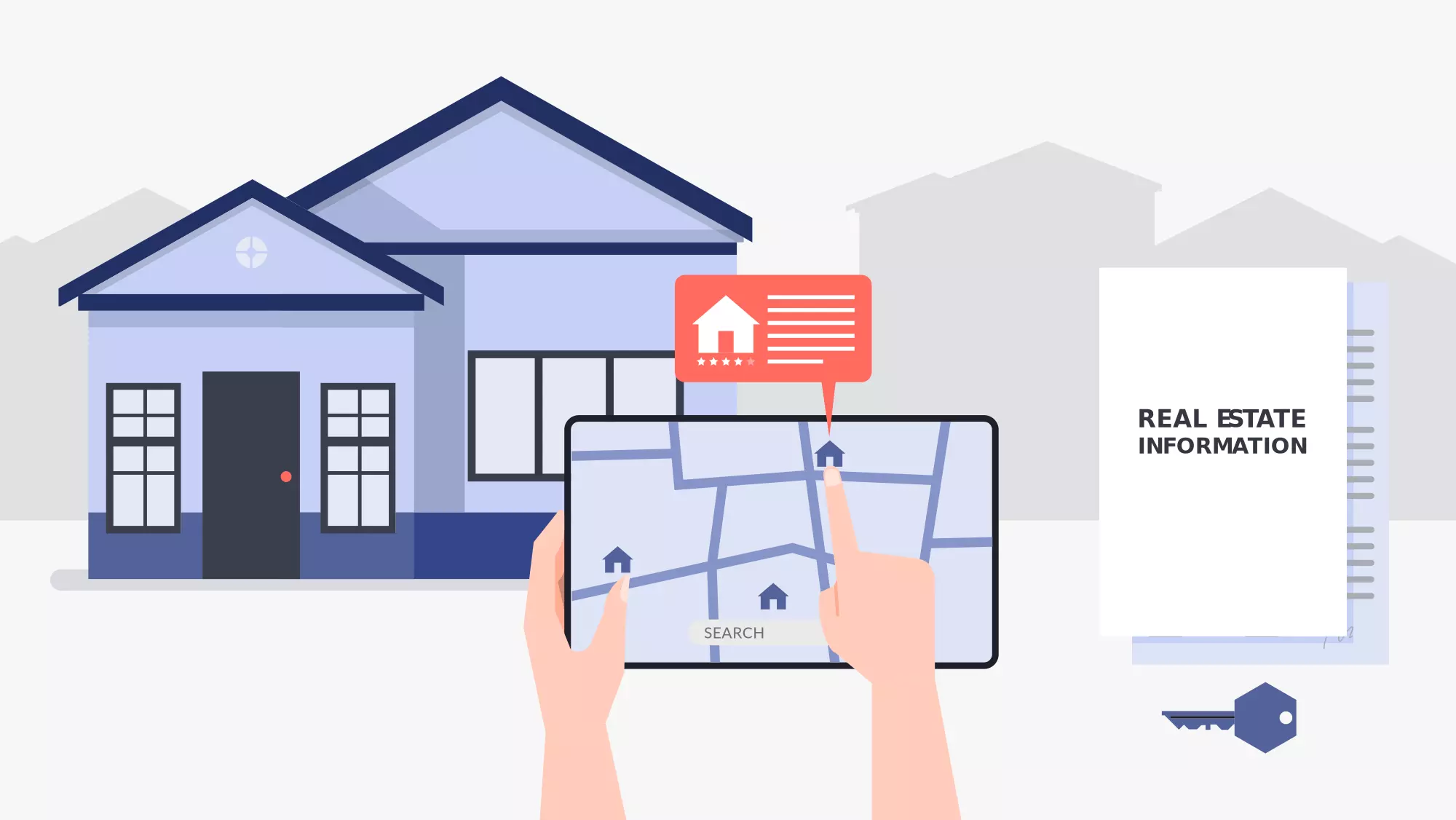In the ever-evolving world of real estate, staying ahead of the curve is not just a matter of choice; it's a necessity.
As technology continues to reshape our lives, it's no surprise that it has made a significant impact on the way real estate agents operate.
The influence of digital marketing trends is more prominent than ever in this industry, and real estate agents who embrace these trends are reaping the benefits.
In this blog post, we'll go into detail regarding how agents can make use of digital marketing - read on to find out more!
The Digital Transformation of Real Estate

(Photo from Teledata ICT)
Let's rewind the clock for a moment and recall the days when buying or selling a house involved a lot of legwork and handshakes. Real estate agents would rely on traditional marketing methods such as flyers, yard signs, and open houses to connect with potential clients. While these methods are still relevant to some extent, the digital era has ushered in a new paradigm.
The Power of Online Listings
Digital marketing trends have led to the creation of vast online platforms where properties are showcased to a global audience. Websites like Zillow, Realtor.com, and Redfin have become household names in the real estate world. Real estate agents now have the power to reach thousands of potential buyers and sellers with a few clicks.
Social Media: A Game Changer
Social media platforms are not just for sharing cat memes and vacation photos; they're powerful tools for real estate agents. The ability to showcase properties on platforms like Instagram, Facebook, and YouTube has opened up new avenues for reaching prospective clients. Visual content, including high-quality images and virtual tours, is now a key component of any real estate agent's marketing strategy.
SEO and Real Estate: A Match Made in Cyberspace

(Photo from Agency Analytics)
Search engine optimization (SEO) is not just a buzzword; it's a lifeline for real estate agents in the digital age. The vast majority of property searches begin online, with homebuyers using search engines like Google to find their dream homes. By employing effective SEO strategies, real estate agents can ensure their listings appear at the top of search results, increasing their chances of attracting potential clients.
Keywords and Local SEO
Using the right keywords is crucial for real estate SEO. Terms like "homes for sale in [city]" or "real estate agents in [neighborhood]" can boost a real estate agent's online visibility. Additionally, optimizing for local SEO is essential for targeting specific geographic areas, helping agents connect with clients in their target markets.
Chatbots and AI: The New Assistant in Town

(Photo from ModuleQ)
Chatbots and artificial intelligence (AI) have become essential tools for real estate agents looking to streamline their communication with clients. Chatbots can engage with website visitors 24/7, answering common questions and providing information about properties. This not only enhances the user experience but also frees up the agent's time for more personalized interactions.
Personalization and Data Analysis
AI can also help real estate agents analyze data and customer behavior to tailor marketing strategies. By understanding what potential buyers are looking for, agents can present them with properties that match their preferences, increasing the likelihood of closing deals.
Email Marketing: A Time-Tested Strategy with a Modern Twist

(Photo from The Financial Express)
While email marketing is not a new concept, it has evolved with the times. Real estate agents can use email campaigns to keep their clients informed about new listings, market trends, and neighborhood updates. Additionally, automated email sequences can nurture leads and keep potential clients engaged.
Drip Campaigns and Newsletters
Drip campaigns, which send a series of targeted emails to leads over time, can be highly effective in converting potential buyers into clients. Newsletters are another valuable tool, allowing agents to share valuable information while staying top of mind.
Virtual Reality (VR) and Augmented Reality (AR)

(Photo from Onix Systems)
Virtual reality and augmented reality have changed the way clients experience properties. With VR, potential buyers can take virtual tours of homes from the comfort of their own living rooms. AR apps can overlay property information onto a user's view of the real world. These technologies provide a more immersive and interactive experience, helping buyers make informed decisions.
Increased Engagement and Trust
By leveraging VR and AR, real estate agents can build trust with their clients by offering a more transparent and engaging property viewing process. Clients can explore properties in detail, reducing the need for physical visits until they are genuinely interested.
Video Marketing: The New Norm

(Photo from Visme)
Video marketing is not just a trend; it's a necessity. Real estate agents are using video to showcase properties, provide market insights, and establish their expertise. Whether it's a virtual tour, an interview with a local expert, or a personal introduction, video content is a powerful way to connect with clients.
YouTube and Live Streaming
YouTube is the second-largest search engine in the world, making it a prime platform for real estate agents. Agents can create informative videos and live streams to engage with their audience and provide valuable content. Live Q&A sessions and virtual open houses have become increasingly popular.
Data Analytics: Making Informed Decisions

(Photo from Shiksha)
Digital marketing trends have brought about a data revolution in the real estate industry. Agents now have access to a wealth of information about client behavior, website performance, and market trends. By using data analytics tools, agents can make informed decisions, fine-tune their marketing strategies, and stay ahead of the competition.
Predictive Analytics
Predictive analytics uses historical data to forecast future trends. Real estate agents can use this approach to identify potential opportunities, such as emerging markets or properties likely to appreciate in value.
To conclude, the influence of digital marketing trends on real estate agents is undeniable. From online listings and social media to SEO, chatbots, and virtual reality, agents who embrace these trends are better positioned to succeed in today's competitive market. By staying up-to-date with the latest technology and strategies, real estate agents can provide a more immersive and personalized experience for their clients, ultimately leading to more successful transactions and satisfied customers. The digital transformation of the real estate industry is here to stay, and those who adapt to it will reap the rewards of a more efficient, customer-focused, and profitable business.
So, go ahead, embrace the digital wave, and ride it all the way to real estate success!
As always, we here from Transactly would like to thank you guys so, so much for taking the time to read this blog post - your continuous support is always appreciated! For all the latest real estate content, latest news, and more to fuel your daily digest, stay tuned: we'll be getting new blog posts up every Monday, Wednesday, Friday, and Saturday.
We'd like to give credit where credit is due and list down the following websites that provided the inspiration behind this blog post - go give their articles a read!
Mediaboom: https://mediaboom.com/news/digital-marketing-for-real-estate-agents/
LinkedIn Pulse: https://www.linkedin.com/pulse/how-digital-marketing-transform-real-estate-industry-2024-fazyl-khan/
Think Orion: https://www.thinkorion.com/blog/real-estate-digital-marketing
Design Hill: https://www.designhill.com/design-blog/digital-marketing-trends-that-are-transforming-the-real-estate-industry/
Proven Partners: https://www.proven.partners/blog/digital-marketing-real-estate